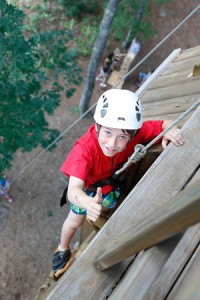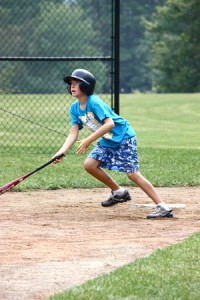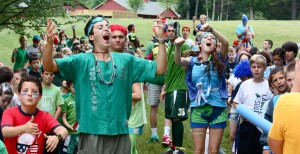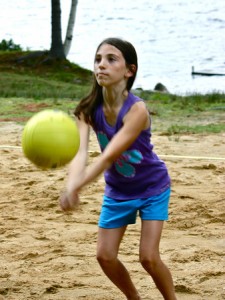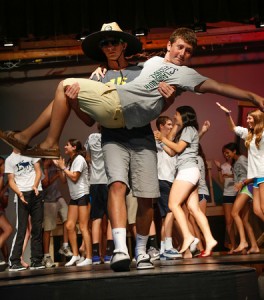 You’ve accepted the position and completed the paperwork. It’s official! You’re about to spend your first summer as a camp counselor. Naturally, a lot of people experience a few nerves in the days leading up to camp. After all, even when you’re a grown adult, leaving behind your family and friends to spend the summer in a strange place is a big deal, especially if you’ve never been away from home for an extended period of time before. If you didn’t attend summer camp as a child, working at summer camp holds even more mystique because you’re not sure what to expect. If first time counselor nerves are haunting you, don’t be so quick to call up and accept that unpaid internship filing paperwork in a stuffy office all summer and, for goodness sake, don’t accept that job at the hot dog stand in the local park. Instead, follow these tips to kick your summer into gear now:
You’ve accepted the position and completed the paperwork. It’s official! You’re about to spend your first summer as a camp counselor. Naturally, a lot of people experience a few nerves in the days leading up to camp. After all, even when you’re a grown adult, leaving behind your family and friends to spend the summer in a strange place is a big deal, especially if you’ve never been away from home for an extended period of time before. If you didn’t attend summer camp as a child, working at summer camp holds even more mystique because you’re not sure what to expect. If first time counselor nerves are haunting you, don’t be so quick to call up and accept that unpaid internship filing paperwork in a stuffy office all summer and, for goodness sake, don’t accept that job at the hot dog stand in the local park. Instead, follow these tips to kick your summer into gear now:
1.) Relax! You are NOT the only first time staff member coming to camp. If you know no 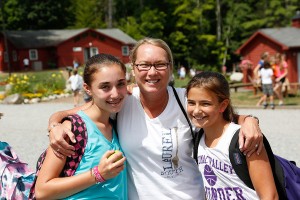 one else going to camp or have never been to camp, that understandably may be a pretty difficult concept to wrap your head around right now. But trust us! When you get to camp, you will be in good company. If you’re feeling a little bit lonely when you first arrive, don’t panic and automatically assume you’ve made a mistake. The majority of people who tend to be drawn to work at camp typically have laid back, easy going and open personalities with an extraverted bend toward making new friends. Chances are that after your camp’s staff orientation period, you’ll have several new friends for life and wonder why you ever even doubted coming to camp.
one else going to camp or have never been to camp, that understandably may be a pretty difficult concept to wrap your head around right now. But trust us! When you get to camp, you will be in good company. If you’re feeling a little bit lonely when you first arrive, don’t panic and automatically assume you’ve made a mistake. The majority of people who tend to be drawn to work at camp typically have laid back, easy going and open personalities with an extraverted bend toward making new friends. Chances are that after your camp’s staff orientation period, you’ll have several new friends for life and wonder why you ever even doubted coming to camp.
2.) Like your camp’s Facebook page and staff Facebook page if it has one. Social media has arrived and most summer camps are completely aware that the easiest and most effective way to communicate with their camp staff is through means such as Facebook, Twitter, and Instagram. By liking your camp’s pages, you can make friends before camp, pick up a lot of useful tips, and even possibly connect with a rideshare if you’re looking for a way to get to camp. Most summer camps also now feature regular blogs. It’s a good idea to pop onto the camp webpage every now and then in the weeks leading up to camp to see what new blogs have been posted. Camps tend to post some blogs, such as this one, for which staff is the intended audience during the late spring and early summer.
 3.) Don’t over or under pack. Packing lists are created by camp professionals who’ve spent enough summers at camp to know what you need to be comfortable for the summer. So read over the staff packing list, if your camp supplies one, when determining what to pack as well as what not to pack. Veteran staff members are also usually more than happy to field questions on staff Facebook pages, which makes them a good resource if you’re unsure about some items.
3.) Don’t over or under pack. Packing lists are created by camp professionals who’ve spent enough summers at camp to know what you need to be comfortable for the summer. So read over the staff packing list, if your camp supplies one, when determining what to pack as well as what not to pack. Veteran staff members are also usually more than happy to field questions on staff Facebook pages, which makes them a good resource if you’re unsure about some items.
4.) Arrive with the right mindset; being a camp counselor really is the hardest job you’ll ever love. Camps tell prospective staff members this during the interview process…and they mean it. You are about to spend the summer working harder than you’ve ever worked in your life, and you will love most moments of it. There will also be moments during which you will question how in the world you ended up working at a summer camp and why you thought it was a good idea. Two things are essential to moving forward when these moments happen, and they’re actually most effective if you prepare yourself with them before you even get to camp. First, arrive with the right attitude. Yes, you’re there to work. You’re there to work hard. You’re also going to have a lot of fun creating amazing moments for and with your campers. Second, know what helps you alleviate stress or frustration and come prepared to engage in it should the need arise.
5.) Be in the moment. Yes, we spend our lives being told how important it is to plan. But at camp, it’s very important to be in the moment and be present with the campers. It’s how you’ll best appreciate the camp counselor experience as well. Summer camp lasts only a few weeks each summer, and things tend to move very quickly. On the first day, you’ll be looking ahead at a whole summer and thinking the end seems like a long way off. But on the last day of camp you will wonder where it went. Don’t find yourself with regrets on that day by realizing that you didn’t take advantage of every moment.
moment and be present with the campers. It’s how you’ll best appreciate the camp counselor experience as well. Summer camp lasts only a few weeks each summer, and things tend to move very quickly. On the first day, you’ll be looking ahead at a whole summer and thinking the end seems like a long way off. But on the last day of camp you will wonder where it went. Don’t find yourself with regrets on that day by realizing that you didn’t take advantage of every moment.


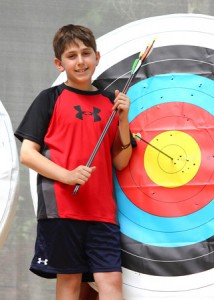
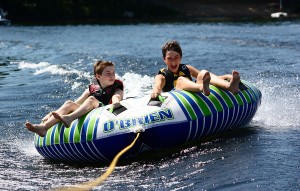
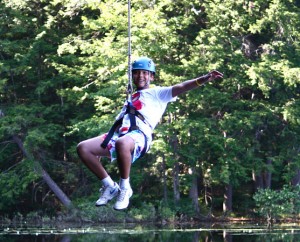
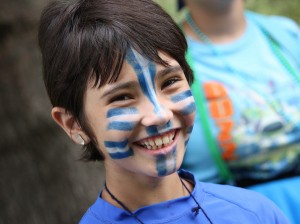
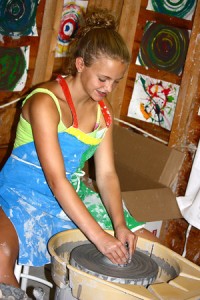
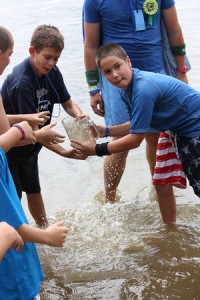
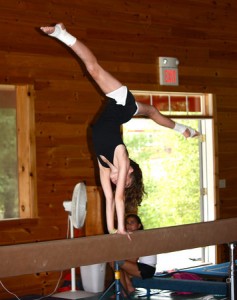
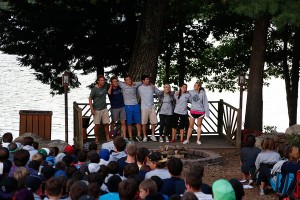
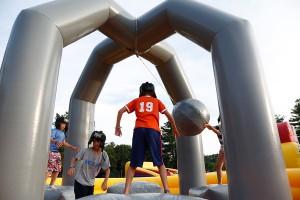


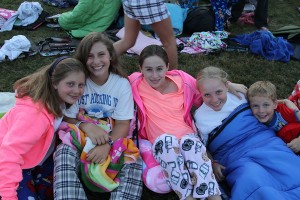
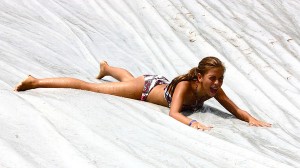
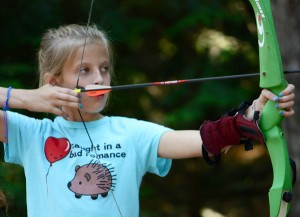
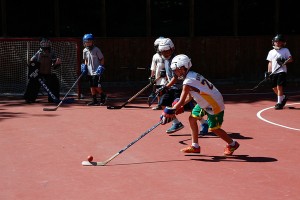
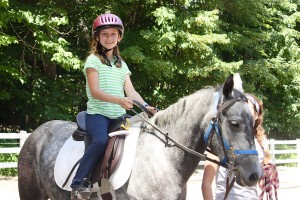
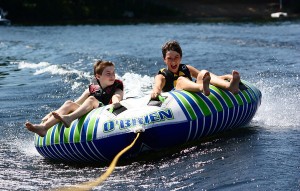
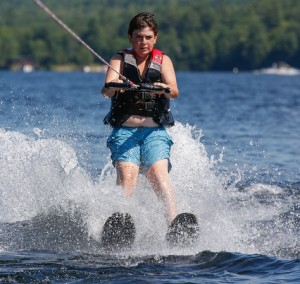
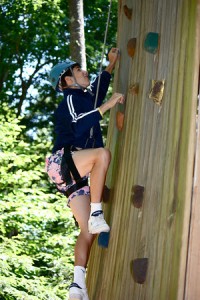
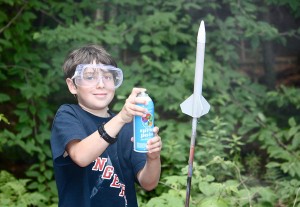
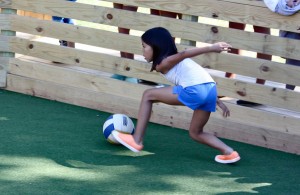
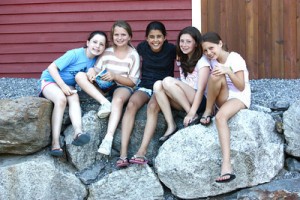
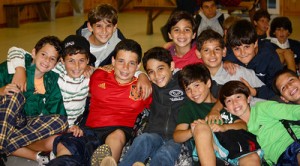
 as significant a role in older campers’ lives as they play in carrying on its traditions. There are a lot of camp articles that sing the praises of summer camp for young children, but few focus on the value of the camp experience for young teens. By the time many campers reach their teens, they already have several camp summers behind them. For them, it’s not really about newness anymore, but reliability and tradition: who is at camp, what is at camp, camp rites to which they’ve looked forward since they were young. In a period of child’s life that can be a roller coaster full of ups and downs that come at full speed, summer camp is oasis of stability. It’s solid ground, a safe place where teenagers go to be themselves and to let loose of the stress and strain that are inextricably part of the teenage years.
as significant a role in older campers’ lives as they play in carrying on its traditions. There are a lot of camp articles that sing the praises of summer camp for young children, but few focus on the value of the camp experience for young teens. By the time many campers reach their teens, they already have several camp summers behind them. For them, it’s not really about newness anymore, but reliability and tradition: who is at camp, what is at camp, camp rites to which they’ve looked forward since they were young. In a period of child’s life that can be a roller coaster full of ups and downs that come at full speed, summer camp is oasis of stability. It’s solid ground, a safe place where teenagers go to be themselves and to let loose of the stress and strain that are inextricably part of the teenage years. At summer camp, teenagers can still be young while getting a taste of what it means to be grown up. They connect with a small group of people with whom they’ve shared experiences since they were very young and with whom they continue to share experiences. They not only share experiences, they share memories that only a select group of others shares. Both give older campers a distinct sense of belonging. Regardless of who or what they are to their school peers the other ten months of the year, camp is a circle of inclusion that often extends far beyond the camp years. Older campers also benefit from privileges that come from being older. They’re tapped to lead camp activities, given leadership roles on teams of younger campers, and charged with being examples in honoring camp traditions. In short, older campers “train” younger campers how to be good campers. For many of them, being a role model and a mentor is one of the best aspects of camp. The pride in having played a role in a younger camper’s life is what brings many former campers back to camp in their adult years to work as counselors.
At summer camp, teenagers can still be young while getting a taste of what it means to be grown up. They connect with a small group of people with whom they’ve shared experiences since they were very young and with whom they continue to share experiences. They not only share experiences, they share memories that only a select group of others shares. Both give older campers a distinct sense of belonging. Regardless of who or what they are to their school peers the other ten months of the year, camp is a circle of inclusion that often extends far beyond the camp years. Older campers also benefit from privileges that come from being older. They’re tapped to lead camp activities, given leadership roles on teams of younger campers, and charged with being examples in honoring camp traditions. In short, older campers “train” younger campers how to be good campers. For many of them, being a role model and a mentor is one of the best aspects of camp. The pride in having played a role in a younger camper’s life is what brings many former campers back to camp in their adult years to work as counselors. goals, be it allowing them to sample career life through Apprentice type tasks, giving them the opportunity to write an essay for the camp blog, giving them a camera and letting them take photos for the camp website, helping them write a college essay or work through a summer reading assignment, or just talking to them about what life as a teacher or a coach is like. By the time campers reach their teenage years, they’ve learned to appreciate what staff members bring to the table and are eager to learn and listen. Ask any former camper to name a camp staff member who had a special impact on their lives, and within seconds they’ll share the story of a beloved counselor or staff member who taught them something about life that they still practice today.
goals, be it allowing them to sample career life through Apprentice type tasks, giving them the opportunity to write an essay for the camp blog, giving them a camera and letting them take photos for the camp website, helping them write a college essay or work through a summer reading assignment, or just talking to them about what life as a teacher or a coach is like. By the time campers reach their teenage years, they’ve learned to appreciate what staff members bring to the table and are eager to learn and listen. Ask any former camper to name a camp staff member who had a special impact on their lives, and within seconds they’ll share the story of a beloved counselor or staff member who taught them something about life that they still practice today. Although many bonds form when campers are young, some of the most special form when they’re older. Sometimes something as simple as a team building exercise helps teenage campers realize that they have more in common with a fellow camper than they thought they did. At an age when it’s all too easy to feel isolated, being able everyday to realize life as a valuable part of a whole translates into some of the most special memories of a camp career.
Although many bonds form when campers are young, some of the most special form when they’re older. Sometimes something as simple as a team building exercise helps teenage campers realize that they have more in common with a fellow camper than they thought they did. At an age when it’s all too easy to feel isolated, being able everyday to realize life as a valuable part of a whole translates into some of the most special memories of a camp career.


